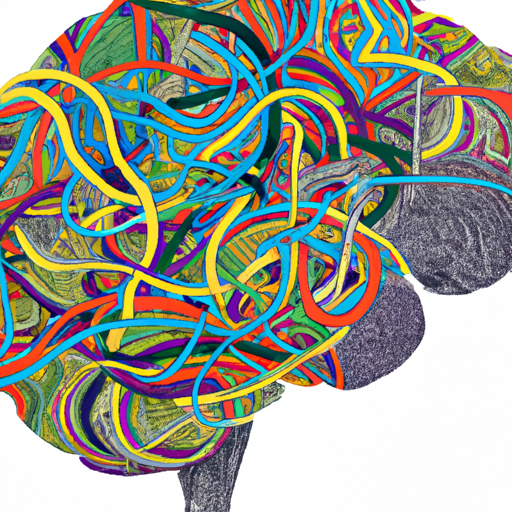Multiple sclerosis is a chronic neurological disease that affects millions of people worldwide. It is a complex condition that can be challenging to diagnose, treat, and manage. This article aims to provide a comprehensive overview of multiple sclerosis, including its symptoms, diagnosis methods, and possible causes. Additionally, it will delve into the various treatment options available to patients, as well as coping strategies and support systems that can help individuals live with the disease. By understanding the intricacies of multiple sclerosis, individuals affected by this condition can navigate their journey with greater knowledge and confidence.
1. Understanding Multiple Sclerosis: Symptoms, Diagnosis, and Causes
Multiple sclerosis (MS) is a chronic neurological condition that affects the central nervous system (CNS). It occurs when the immune system mistakenly attacks the protective covering of nerve fibers, known as myelin, in the brain and spinal cord. This damage disrupts the normal flow of electrical impulses along the nerves, leading to a wide range of symptoms.
The symptoms of multiple sclerosis can vary greatly from person to person, making it a challenging condition to diagnose. Some common symptoms include fatigue, difficulty walking, numbness or tingling in the limbs, muscle weakness, problems with coordination and balance, blurred vision, and cognitive impairment. These symptoms can come and go or progress over time, leading to periods of relapse and remission.
Diagnosing multiple sclerosis often involves a combination of medical history review, physical examination, and various tests. A neurologist will typically assess the patient’s symptoms, perform a neurological examination to evaluate reflexes, coordination, and strength, and may order additional tests such as magnetic resonance imaging (MRI) to visualize any lesions or areas of damage in the CNS. Other tests, such as a lumbar puncture or evoked potentials, may also be conducted to further support the diagnosis.
2. Treatment Options for Multiple Sclerosis: Managing the Disease
Multiple sclerosis (MS) is a chronic neurological disease that affects the central nervous system. It is characterized by the immune system mistakenly attacking the protective covering of nerve fibers, leading to communication problems between the brain and the rest of the body. While there is no known cure for MS, there are various treatment options available to manage the disease and improve the quality of life for those affected.
The treatment of multiple sclerosis is highly individualized and depends on the specific symptoms experienced by each patient. The primary goals of treatment are to slow down the progression of the disease, manage symptoms, and prevent relapses or flare-ups. Here are some common treatment options used in the management of multiple sclerosis:
1. Disease-Modifying Therapies (DMTs): These medications aim to modify the immune system’s response and reduce inflammation in the central nervous system. DMTs can help slow down the progression of MS, decrease the frequency and severity of relapses, and delay the accumulation of disability. There are several different types of DMTs available, including injectable drugs, oral medications, and infusion therapies. The choice of DMT depends on factors such as the type of MS, disease activity, and individual preferences.
You can find out more about this theme here: https://bbgate.com/media/α-pvp-mdpv-synthesis-from-2-bromovalerophenone.47/.
3. Living with Multiple Sclerosis: Coping Strategies and Support for Patients
Living with Multiple Sclerosis: Coping Strategies and Support for Patients
Being diagnosed with multiple sclerosis (MS) can be overwhelming and life-altering. The unpredictable nature of the disease and its potential impact on various aspects of daily life can present significant challenges for those living with MS. However, with the right coping strategies and support, individuals can effectively manage the physical, emotional, and social effects of the condition.
One essential coping strategy for individuals with MS is to educate themselves about the disease. Understanding the symptoms, causes, and progression of MS can help patients make more informed decisions about their treatment options and lifestyle adjustments. By learning about their condition, individuals can better anticipate and manage symptoms, reducing the impact MS has on their daily lives.
Adopting a healthy lifestyle is another crucial aspect of living with MS. Regular exercise, a balanced diet, and adequate rest can contribute to overall well-being and help manage MS symptoms. Engaging in physical activities that are suitable for individual abilities, such as swimming or yoga, can improve strength, flexibility, and coordination. Additionally, a nutritious diet rich in fruits, vegetables, whole grains, and lean proteins can support immune function and provide the necessary nutrients for the body’s optimal functioning.


